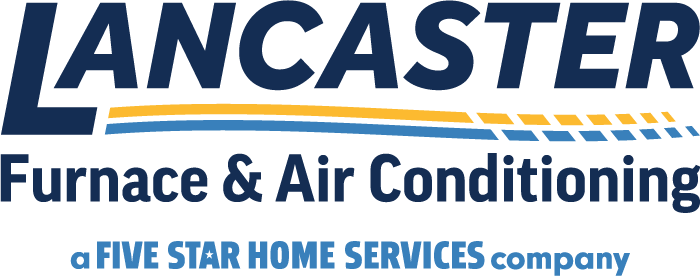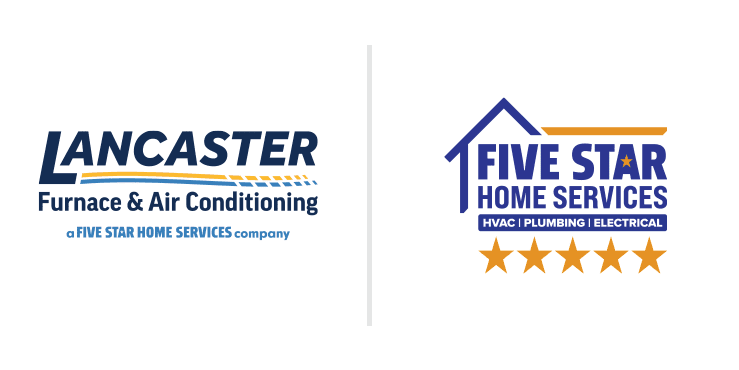HVAC Frequently Asked Questions in Lancaster, OH
HVAC Frequently Asked Questions
At Lancaster Furnace & Air Conditioning, we answer some of the most commonly asked HVAC related questions. We receive these types of questions from homeowners all the time, so we’ve compiled a guide to help ease your stress. Be sure to check out our blog posts for HVAC tips & tricks. Check out our FAQ below and contact us with any other questions!
FAQ Quick Guide


About Lancaster Furnace & AC


General HVAC FAQ


Heating FAQ


Cooling FAQ


Indoor Air Quality FAQ
About Lancaster Furnace & Air Conditioning
Lancaster Furnace & Air Conditioning FAQ
What are your hours of operation?
What services do you provide?
We specialize in HVAC services in Lancaster, OH, and surrounding areas. This includes Heating, Cooling, and Indoor Air Quality services. Furthermore, we do furnace repair, AC replacement, system installation, preventative maintenance, heat pump repair, and much more.
Do you offer HVAC financing?
Yes, we are proud to offer our customers financing options!
The HVAC Experts in Lancaster, OH
General HVAC FAQ
How do I determine the size of the unit for my home?
To determine this correctly, you should have a certified HVAC technician come to your home to take accurate measurements, especially if you are looking to replace your old equipment or purchase any new equipment.
Our technicians take a variety of factors into consideration and make accurate and educated recommendations for correctly-sized equipment suitable for your needs. They look at the total square footage of your home, the number and types of windows and doors and rooms, your insulation, and even the number of people living with you to provide an exact calculation.
What does SEER mean?
What does HSPF stand for?
The Heating Experts in Lancaster, OH
Heating FAQ
What is carbon monoxide? What should I do if I smell gas?
Carbon monoxide (CO) is a colorless, odorless, and toxic gas. The Environmental Protection Agency warns that at low levels of exposure, CO causes mild effects that are often mistaken for the flu. These symptoms include headaches, dizziness, disorientation, nausea, and fatigue.
If you’re concerned about a potential leak, evacuate yourself and any other persons/pets from inside the home immediately. Use a phone located outside of the home to call your local gas utility and/or the fire department.
When should I call for furnace repair?
If you’re experiencing any of the following, contact us immediately.
- The unit is non-functioning
- The unit is only blowing cold air
- The ignition light is malfunctioning
- The furnace flame sensor does not detect flames properly
- The motor is showing signs of disrepair
- The thermostat is faulty
What can I do to improve the efficiency of my furnace?
A furnace tune-up will help improve your furnace’s efficiency. Our technician will perform a variety of services to your furnace that will improve its efficiency and performance. Learn more about furnace maintenance here.
The Cooling Experts in Lancaster, OH
Cooling FAQ
Should I cover my outdoor units during the winter?
Covering your outdoor unit during the winter will protect it from falling ice or other issues. Coverings should not be airtight; trash can lid secured down by bungee cords work well. However, if there’s a chance of anyone turning on the air conditioner while it’s covered, don’t do it. Turning on a covered AC could damage your condenser and its internal components. Having said that, outdoor units are designed to withstand the environment year-round and covering them isn’t really necessary.
Can I plant shrubs and/or flowers around my outdoor condensing unit?
Flowers and shrubs are acceptable around your outdoor unit. However, all plant life should be kept a few feet away from the unit to give the system plenty of room for air circulation in and out of the unit.
Without this room for air circulation, the unit might overheat and cause premature problems requiring repairs. Be mindful if you have plants around the unit to remember to trim them and keep everything else out of the way.
What is the difference between a package unit and a split system?
The Indoor Air Quality Experts in Lancaster, OH
Indoor Air Quality FAQ
What symptoms are often linked to poor Indoor Air Quality?
It is common for people to report one or more of the following symptoms:
- Dryness and irritation of the eyes, nose, throat, and skin
- Headache
- Fatigue
- Shortness of breath
- Hypersensitivity and allergies
- Sinus congestion
- Coughing and sneezing
- Dizziness
- Nausea
What are the different types of indoor pollutants?
Here are examples of common indoor air contaminants and their main sources:
- Carbon dioxide (CO2), tobacco smoke, perfume, body odors – from building occupants.
- Dust, fiberglass, asbestos, gases, including formaldehyde – from building materials.
- Toxic vapors, volatile organic compounds (VOCs) – from workplace cleaners, solvents, pesticides, disinfectants, glues.
- Gases, vapors, odors – off-gas emissions from furniture, carpets, and paints.
- Dust mites – from carpets, fabric, foam chair cushions.
- Microbial contaminants, fungi, molds, bacteria – from damp areas, stagnant water, and condensate pans.
- Ozone – from photocopiers, electric motors, electrostatic air cleaners.
How often should I replace my air filters?
Generally speaking, every 90 days. Most experts will recommend every 2-3 months. At the very least, change them once every quarter.
Lancaster Furnace & Air Conditioning
Resource Center
Recent HVAC Blog Posts
How to Stay Cool with a Broken AC
If your AC has suddenly broken down, you might feel like you're melting under Ohio's scorching...
Why Is My AC Freezing Up?
Encountering a frozen air conditioner can be quite bewildering. The idea of an AC unit freezing up...
Quick Links


Heating Safety Tips


Cooling Efficiency Tips


Improve Your Indoor Air Quality


Leave Us a review


Online Deals







